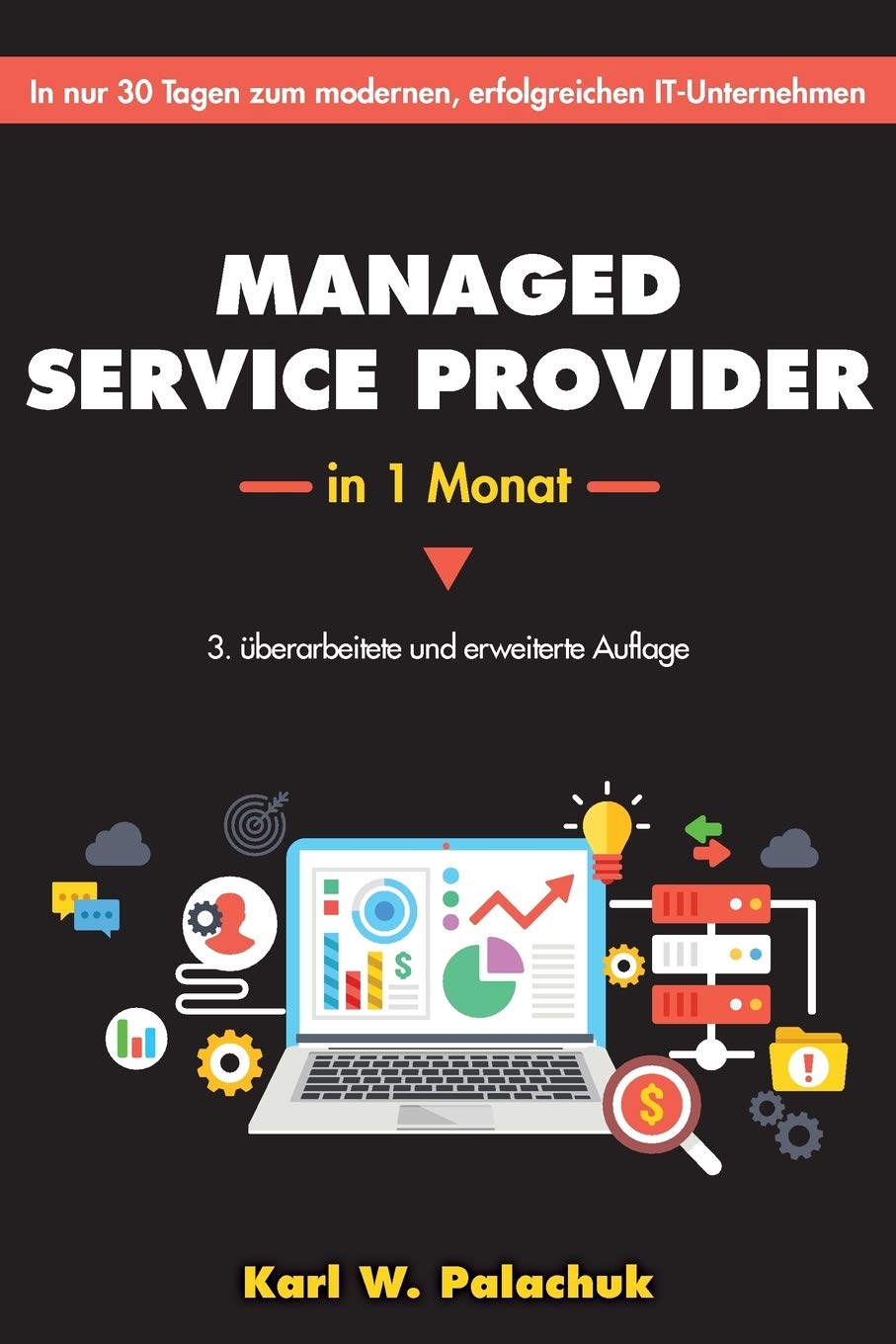Your cart is currently empty!
Tag: Managed

Choosing the Right Managed Service Provider for Your Business
Choosing the right managed service provider (MSP) for your business is a crucial decision that can have a significant impact on your company’s success. MSPs play a vital role in managing and maintaining your IT infrastructure, helping you improve efficiency, reduce costs, and enhance security. With so many MSPs to choose from, it’s essential to do your research and find a provider that meets your specific needs and requirements.When selecting an MSP, there are several factors to consider to ensure you make the right choice for your business. Here are some key points to keep in mind:
1. Assess your needs: Before you start looking for an MSP, it’s essential to assess your business’s IT needs and requirements. Consider what services you need, such as network monitoring, data backup, cybersecurity, and helpdesk support. Understanding your needs will help you narrow down your options and find an MSP that can provide the services you require.
2. Look for experience and expertise: When choosing an MSP, it’s crucial to look for a provider with experience and expertise in managing IT infrastructure. Look for providers that have a proven track record of success and a team of skilled professionals who are knowledgeable in the latest technologies and trends.
3. Consider scalability: As your business grows, your IT needs will also evolve. Make sure to choose an MSP that can scale with your business and accommodate your changing requirements. Look for a provider that offers flexible solutions and can adapt to your business’s growth.
4. Evaluate security measures: In today’s digital landscape, cybersecurity is a top priority for businesses of all sizes. When selecting an MSP, make sure to evaluate their security measures and protocols. Look for providers that offer robust cybersecurity solutions, such as firewalls, antivirus software, and data encryption, to protect your sensitive information.
5. Check for reliability and uptime: Downtime can be costly for businesses, leading to lost productivity and revenue. When choosing an MSP, make sure to check their reliability and uptime guarantees. Look for providers that offer 24/7 monitoring and support to ensure your systems are always up and running.
6. Consider pricing and contracts: Pricing is an important factor to consider when choosing an MSP. Make sure to compare pricing plans and contracts from different providers to find one that fits your budget. Look for transparent pricing and flexible contract options that meet your needs.
Overall, choosing the right managed service provider for your business is a critical decision that can have a significant impact on your company’s success. By considering these factors and doing your research, you can find an MSP that meets your needs and helps you achieve your business goals.

CBM Managed Services Hat Orange Adjustable Baseball Hat Adult Hat Orange Cap

CBM Managed Services Hat Orange Adjustable Baseball Hat Adult Hat Orange Cap
Price :19.00– 9.50
Ends on : N/A
View on eBay
Looking for a stylish and practical hat to wear this summer? Look no further than the CBM Managed Services Hat Orange Adjustable Baseball Hat! This adult-sized cap features a vibrant orange color that is perfect for adding a pop of color to any outfit.The adjustable strap at the back ensures a comfortable and secure fit for all head sizes. Whether you’re heading to the beach, running errands, or just hanging out with friends, this hat is the perfect accessory to keep you looking cool and stylish.
Don’t wait, grab your CBM Managed Services Hat Orange Adjustable Baseball Hat today and take your summer style to the next level!
#CBM #Managed #Services #Hat #Orange #Adjustable #Baseball #Hat #Adult #Hat #Orange #Cap
Understanding the Role of Managed Services in IT Support
In today’s fast-paced digital world, businesses rely heavily on their IT infrastructure to operate efficiently and effectively. However, managing and maintaining IT systems can be a complex and time-consuming task, especially for small to medium-sized businesses that may not have the resources or expertise to handle it on their own. This is where managed services come in.Managed services refer to the practice of outsourcing the management of a company’s IT systems and infrastructure to a third-party provider. These providers, known as managed service providers (MSPs), offer a range of services, including monitoring, maintenance, security, and support, to help businesses optimize their IT operations and reduce downtime.
One of the key roles of managed services in IT support is proactive monitoring and maintenance. MSPs use advanced monitoring tools to keep a constant eye on a company’s IT systems, detecting and resolving issues before they escalate into major problems. This proactive approach helps businesses minimize downtime and ensure their systems are running smoothly at all times.
In addition to monitoring and maintenance, managed services also play a crucial role in enhancing the security of a company’s IT infrastructure. With the increasing number of cyber threats and data breaches, it’s more important than ever for businesses to have robust security measures in place. MSPs offer services such as threat detection, vulnerability assessments, and security audits to help businesses protect their sensitive data and prevent cyber attacks.
Furthermore, managed services provide businesses with access to a team of IT experts who have the knowledge and experience to handle a wide range of IT issues. Whether it’s troubleshooting a technical problem, implementing a new software solution, or upgrading hardware, MSPs have the expertise to help businesses navigate the complexities of IT support.
Overall, the role of managed services in IT support is to enable businesses to focus on their core operations while leaving the management of their IT systems to the experts. By outsourcing IT support to a managed service provider, businesses can benefit from improved efficiency, enhanced security, and cost-effective solutions that help them stay competitive in today’s digital landscape.

How Managed Service Providers Can Improve Business Efficiency
In today’s fast-paced and technology-driven business environment, companies are constantly looking for ways to streamline their operations and improve efficiency. One effective way to achieve this is by partnering with a managed service provider (MSP). Managed service providers offer a range of services, including IT support, network management, cybersecurity, and cloud computing, to help businesses optimize their operations and achieve their goals.One of the key ways that managed service providers can improve business efficiency is by providing proactive IT support and maintenance. By monitoring a company’s IT infrastructure on a regular basis, MSPs can identify and address potential issues before they escalate into major problems. This proactive approach helps to minimize downtime and ensure that employees can continue to work without disruption.
Managed service providers also help businesses to stay up-to-date with the latest technology trends and solutions. With the rapid pace of technological advancements, it can be challenging for companies to keep pace with the latest developments. MSPs have the expertise and resources to help businesses leverage new technologies and tools to improve their operations and gain a competitive edge in the market.
Another way that managed service providers can improve business efficiency is by enhancing cybersecurity measures. In today’s digital landscape, cybersecurity threats are constantly evolving, and businesses need to take proactive steps to protect their data and systems from potential breaches. MSPs can implement robust cybersecurity measures, such as firewalls, encryption, and multi-factor authentication, to safeguard a company’s sensitive information and prevent unauthorized access.
Additionally, managed service providers can help businesses to leverage cloud computing solutions to improve efficiency and flexibility. Cloud computing allows companies to access their data and applications from anywhere, at any time, and on any device. This flexibility enables employees to work remotely and collaborate more effectively, leading to increased productivity and efficiency.
In conclusion, managed service providers play a crucial role in helping businesses improve efficiency and achieve their goals. By providing proactive IT support, staying up-to-date with the latest technology trends, enhancing cybersecurity measures, and leveraging cloud computing solutions, MSPs can help companies optimize their operations and drive growth. Partnering with a managed service provider can be a strategic investment for businesses looking to stay competitive in today’s digital landscape.

Managed Service Provider in 1 Monat: In Nur 30 Tagen Zum Modernen, Erfolgreichen It-Unternehmen (German Edition)
Price: $29.95
(as of Nov 23,2024 06:05:40 UTC – Details)
Publisher : Great Little Book Publishing Co., Inc.; 3.Auflage ed. (October 31, 2018)
Language : German
Paperback : 272 pages
ISBN-10 : 1942115520
ISBN-13 : 978-1942115526
Item Weight : 12.9 ounces
Dimensions : 5.98 x 0.57 x 9.02 inches
Are you looking to transform your IT business into a modern and successful company in just 30 days? Look no further than the German edition of “Managed Service Provider in 1 Monat: In Nur 30 Tagen Zum Modernen, Erfolgreichen It-Unternehmen.” This comprehensive guide provides step-by-step strategies and best practices for turning your IT company into a thriving managed service provider. From developing a strong service offering to implementing efficient workflows, this book covers everything you need to know to elevate your business to the next level. Don’t wait any longer to achieve your IT business goals – get your copy today and start your journey to success! #ManagedServiceProvider #ITUnternehmen #Erfolg
#Managed #Service #Provider #Monat #Nur #Tagen #Zum #Modernen #Erfolgreichen #ItUnternehmen #German #Edition
How Managed Services Can Save Your Company Time and Money
In today’s fast-paced business world, time and money are two of the most valuable resources a company can have. With the rise of technology and the increasing complexity of IT systems, many companies are turning to managed services to help them save time and money.Managed services refer to the practice of outsourcing certain IT functions to a third-party provider who is responsible for managing and maintaining these services. This can include tasks such as network monitoring, security management, data backup, and software updates.
One of the main ways that managed services can save a company time and money is by allowing them to focus on their core business functions. By outsourcing IT tasks to a managed services provider, companies can free up their internal IT staff to work on more strategic projects that can help drive growth and innovation.
Additionally, managed services providers typically have a team of experts who are trained and experienced in the latest technologies and best practices. This means that companies can benefit from their expertise without having to invest in ongoing training and development for their internal IT staff.
Managed services can also help companies save money by providing predictable, fixed-cost pricing models. Instead of having to budget for unexpected IT expenses, companies can pay a monthly fee for the services they need, which can help them better manage their IT budget.
Furthermore, managed services providers often have access to advanced tools and technologies that can help companies improve their IT infrastructure and security posture. This can help prevent costly downtime and data breaches, which can have a significant impact on a company’s bottom line.
Overall, managed services can be a cost-effective solution for companies looking to streamline their IT operations, improve efficiency, and reduce the risk of costly IT issues. By partnering with a managed services provider, companies can save time and money while also gaining access to a team of experts who can help them navigate the ever-changing IT landscape.
The Benefits of Managed Service Providers for Businesses
Managed service providers (MSPs) are becoming increasingly popular among businesses of all sizes. These third-party companies provide a range of IT services and support to help organizations manage their technology infrastructure more efficiently. From network security to data backup and disaster recovery, MSPs offer a wide range of services that can benefit businesses in numerous ways.One of the primary benefits of working with an MSP is cost savings. By outsourcing IT services to a managed service provider, businesses can avoid the high costs associated with hiring and training in-house IT staff. MSPs typically offer fixed monthly fees for their services, making it easier for businesses to budget for their IT needs.
MSPs also provide businesses with access to a team of highly skilled IT professionals. These experts have the knowledge and experience to handle a wide range of IT issues, from troubleshooting network problems to setting up new software applications. By working with an MSP, businesses can ensure that their technology infrastructure is always up-to-date and running smoothly.
Another key benefit of using an MSP is improved security. Cybersecurity threats are constantly evolving, and it can be challenging for businesses to keep up with the latest security measures. MSPs have the expertise to implement robust security protocols and monitor for potential threats, helping to protect businesses from cyberattacks and data breaches.
Additionally, MSPs can help businesses improve their overall efficiency and productivity. By outsourcing routine IT tasks to a managed service provider, businesses can focus on their core operations and strategic initiatives. MSPs can also provide proactive maintenance and monitoring of IT systems, helping to prevent issues before they occur and minimizing downtime.
In conclusion, managed service providers offer a wide range of benefits for businesses looking to streamline their IT operations and improve security. From cost savings to access to skilled IT professionals, MSPs can help businesses of all sizes maximize their technology investments and stay ahead of the competition. If you’re looking to take your business to the next level, consider partnering with a managed service provider today.

The Benefits of Partnering with a Managed Service Provider
In today’s fast-paced business environment, companies are constantly looking for ways to streamline their operations, cut costs, and improve efficiency. One way that many businesses are achieving these goals is by partnering with a Managed Service Provider (MSP). An MSP is a third-party company that manages and assumes responsibility for providing a specific set of services to its clients.There are numerous benefits to partnering with an MSP, including:
1. Cost savings: By outsourcing certain IT functions to an MSP, companies can reduce the costs associated with hiring and training in-house staff. MSPs typically offer their services at a fixed monthly fee, which can help companies better predict and manage their IT expenses.
2. Increased efficiency: MSPs are experts in their field and have the knowledge and resources to quickly and effectively resolve IT issues. This allows companies to focus on their core business activities without being bogged down by technical problems.
3. Access to the latest technology: MSPs invest in state-of-the-art technology and tools to ensure that their clients’ systems are always up-to-date and secure. By partnering with an MSP, companies can benefit from access to cutting-edge technology without having to make a large upfront investment.
4. Enhanced security: Cybersecurity is a growing concern for businesses of all sizes. MSPs have the expertise to implement robust security measures and protocols to protect their clients’ sensitive data from cyber threats.
5. Scalability: As businesses grow and evolve, their IT needs may change. MSPs offer scalable solutions that can easily adapt to a company’s changing requirements, whether it’s adding new users, expanding to new locations, or deploying new technologies.
6. Proactive monitoring and maintenance: MSPs proactively monitor their clients’ systems to identify and address potential issues before they escalate into major problems. This proactive approach helps to minimize downtime and keep systems running smoothly.
7. Focus on strategic initiatives: By outsourcing routine IT tasks to an MSP, companies can free up their internal IT staff to focus on more strategic initiatives that can drive business growth and innovation.
Overall, partnering with a Managed Service Provider can help companies improve their operational efficiency, reduce costs, increase security, and stay ahead of the competition. With their expertise and resources, MSPs can provide valuable support to businesses of all sizes and industries. If you’re looking to take your company to the next level, consider partnering with an MSP today.

The Psychotherapists’ Guide to Managed Care in the 21st Century: Surviving Big Brother and Providing Quality Mental Health Services
Price: $61.00
(as of Nov 23,2024 03:48:44 UTC – Details)
Publisher : Jason Aronson, Inc.; 1st edition (May 1, 1997)
Language : English
Hardcover : 402 pages
ISBN-10 : 0765700026
ISBN-13 : 978-0765700025
Item Weight : 1.6 pounds
Dimensions : 7.08 x 1.11 x 9.18 inches
In today’s world of managed care, psychotherapists face unique challenges in providing quality mental health services while navigating the complex regulations and restrictions imposed by insurance companies. As “Big Brother” continues to exert control over the healthcare industry, it’s essential for therapists to arm themselves with the knowledge and strategies needed to survive and thrive in this ever-changing landscape.Here are some key tips for psychotherapists looking to navigate managed care in the 21st century:
1. Stay Informed: Keep up to date on the latest developments in managed care and insurance regulations. Attend workshops, conferences, and trainings to stay informed about changes in the industry.
2. Advocate for Your Clients: Be a strong advocate for your clients and their mental health needs. Work closely with insurance companies to ensure that your clients receive the care they need and deserve.
3. Build Strong Relationships: Develop strong relationships with insurance company representatives and case managers to streamline the approval process for your clients’ services.
4. Utilize Evidence-Based Practices: Use evidence-based practices in your therapy sessions to provide quality care and demonstrate the effectiveness of your services to insurance companies.
5. Stay Flexible: Be prepared to adapt to changes in the managed care environment. Stay flexible and open to new ways of providing mental health services to meet the needs of your clients and comply with insurance requirements.
By following these tips and staying informed, psychotherapists can navigate the challenges of managed care in the 21st century and continue to provide quality mental health services to their clients. Remember, your dedication to your clients’ well-being is what truly matters, and with perseverance and determination, you can overcome the obstacles posed by “Big Brother” and thrive in the ever-evolving world of managed care.
#Psychotherapists #Guide #Managed #Care #21st #Century #Surviving #Big #Brother #Providing #Quality #Mental #Health #Services
The Top Trends Shaping the Managed Services Industry
The managed services industry is constantly evolving, with new trends and technologies shaping the way businesses approach IT solutions. From cloud computing to cybersecurity, there are several key trends that are currently shaping the industry and driving innovation. Here are some of the top trends that are influencing the managed services industry today:1. Cloud Computing: Cloud computing continues to be a major trend in the managed services industry, with more businesses turning to cloud-based solutions for their IT needs. Cloud computing offers scalability, flexibility, and cost efficiency, making it an attractive option for businesses of all sizes. Managed service providers are increasingly offering cloud-based services to help their clients streamline their IT infrastructure and improve efficiency.
2. Cybersecurity: As cyber threats continue to evolve and become more sophisticated, cybersecurity has become a top priority for businesses of all sizes. Managed service providers are increasingly offering cybersecurity services to help businesses protect their data and systems from cyber attacks. From threat detection and response to security audits and compliance, cybersecurity is a critical aspect of managed services today.
3. Artificial Intelligence and Automation: Artificial intelligence (AI) and automation are also shaping the managed services industry, with more businesses leveraging these technologies to improve efficiency and streamline operations. AI-powered tools can help managed service providers automate routine tasks, monitor systems in real-time, and identify potential issues before they become major problems. Automation can also help businesses reduce human error and improve overall productivity.
4. Remote Work and Collaboration: The shift to remote work has also had a significant impact on the managed services industry, with businesses looking for solutions that enable employees to work from anywhere. Managed service providers are offering remote work solutions that include secure access to company data and applications, collaboration tools, and remote support services. As remote work becomes the new norm, managed service providers are adapting their offerings to meet the changing needs of businesses and employees.
5. Internet of Things (IoT): The Internet of Things (IoT) is another trend that is shaping the managed services industry, with more businesses connecting devices and sensors to the internet to collect data and improve operations. Managed service providers are offering IoT services that help businesses manage and secure their IoT devices, analyze data, and optimize performance. From smart buildings to connected vehicles, IoT is revolutionizing the way businesses operate and managed service providers are at the forefront of this transformation.
Overall, the managed services industry is experiencing rapid growth and innovation, driven by key trends such as cloud computing, cybersecurity, AI and automation, remote work, and IoT. Businesses that partner with managed service providers can benefit from these trends by gaining access to cutting-edge technologies, improving efficiency, and enhancing security. As the industry continues to evolve, businesses should stay informed about the latest trends and work with experienced managed service providers to stay ahead of the curve.
